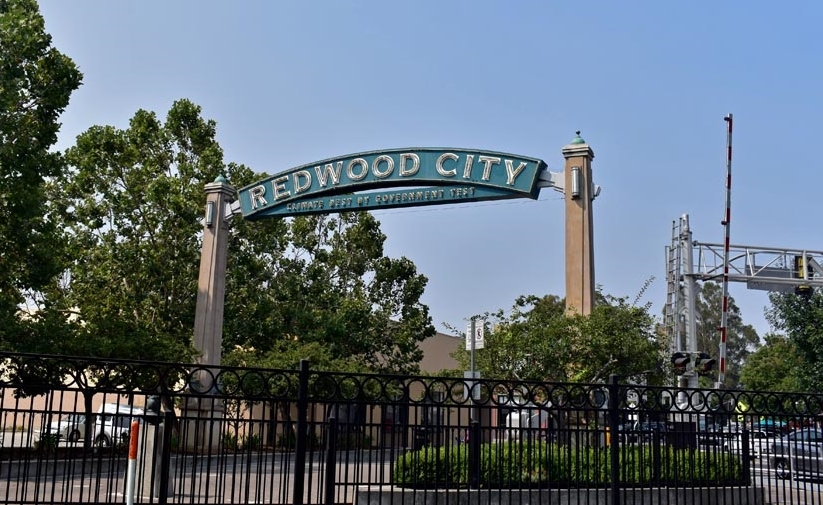In the wake of community calls to reexamine policing in Redwood City, the city has proposed a budget for next fiscal year that won’t immediately change current police service levels but allows for modifications in October based upon a community input process that will run from July through September.
In addition, the city is proposing immediate steps by the council at its Monday meeting, including endorsement of the Obama Foundation Mayor’s Pledge to review and reform police policies via a community engagement process, and to increase the frequency of racial and cultural diversity training for city police from every five years to every two years.
In response to community requests to demilitarize police, the city proposes to return a military tactical vehicle donated by the federal government in 2013. Also recommended is a prohibition of the use of carotid restraint, a type of vascular neck restraint, except in cases where deadly force would be authorized.
Neck restraint tactics have come under increasing scrutiny after Minneapolis police Officer Derek Chauvin knelt on the neck of George Floyd for nearly nine minutes, causing sustained asphyxiation that resulted in his death. Floyd’s death sparked nationwide protests over police brutality and racial injustice, including a large, peaceful demonstration in Courthouse Square in Redwood City on June 2.
Along with the above proposals, the city wants to preserve art related to the June 2 Black Live Matters protest and develop a temporary display that includes information and resources on racism. The display will initially appear at the Main Library Parking lot and move to other community locations.
The list of proposals comes after the city faced criticism over what some in the community perceived as an overly scripted Virtual Town Hall meeting on June 10 on community policing. Over 500 people participated in the virtual town hall involving the mayor, vice mayor, city manager and police chief. The city received hundreds of inquiries both during the meeting and over the last few weeks on the topic of police reform – the most City Manager Melissa Stevenson Diaz said she has seen on any other topic.
“People want to talk to us right now,” Diaz said. “They really just want to share their concerns, they want to share their hopes for the future.”
The city manager said the virtual town hall made it clear that “we need to have more ways for us to listen.”
Through September, Diaz envisions a robust public outreach process on police reform. While still done virtually for safety reasons, the process will likely feature smaller groups to better facilitate dialogue between city representatives and residents. The city manager’s hope is that priorities and themes will emerge from the discussions that can be put into action when council reviews a revised budget in October.
Question is, what will the city be able to afford? Like many cities, Redwood City is projecting budget deficits due to the COVID-19 shelter in place period. City officials don’t yet know the full impact that will be caused by reduced tax revenue from local businesses amid the lockdown.
While council is required to pass a budget by June 30, the city has for months been planning to push big decisions on service changes until the fall, when the COVID-19 economic impacts become clearer.
“We don’t have a good way to predict what this recession is going to be like,” Diaz said, adding the city has taken steps to limit spending and save money.
Meanwhile, the city wants to spend the next few months addressing community needs and concerns so they are factored into the budget discussion in October, Diaz said. Not only does the city need to address community concerns over racial injustice, it needs to respond to a new normal posed by the health pandemic, Diaz said.
“We’ve already been thinking we’d need to reshape city services in some way,” she said. “The current climate is providing more ideas as to what we need to meet the community’s needs better.”
Diaz added that she’s heartened by the outpouring of community participation inspired by a national call for reform, including from those newly engaging with the city.
“This is a critical time for communities nationwide to listen, learn and act to address racial inequality,” she said, adding, “We are committed to truly hearing from our community, and taking positive steps forward.”






